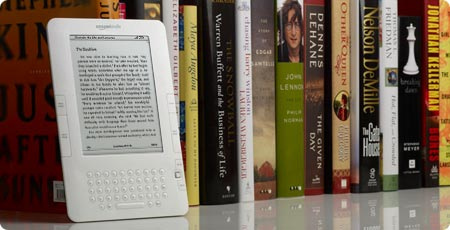Writing Tip: Being Hybrid for Indie Authors
Once upon a time, the big discussion in the publishing world was whether authors should be traditionally published or whether they should self-publish. The arguments came fast and furious on both sides, and more often than not, mud and curse words were hurled like gunshot across the battleground. But then everything seemed to smooth out and calm down, and even trad pub admitted that a lot of self-published writers out there were up to snuff and worth their salt. Not only that, many formerly traditionally published authors saw how lucrative self-publishing could be, and left their contracts or self-published books on the side.
And the age of Hybrid Authors was born. It was the best of both worlds. For hybrid authors, a promising career in traditional publishing gave them their first boost, and they were able to capitalize on that head-start and make boatloads of money off of their self-published work. Plenty of studies show that hybrid authors make the most money and sell the most books.
So where does that leave those of us who are very happy to swim the indie waters without searching for hooks from trad pub?

image courtesy of goXunuReviews via flickr commons
We were all doing fine. Fine, that is, until the panic gong was sounded over Amazon upending our bottom line with Kindle Unlimited. I heard from so many writers this past summer who freaked out when their sales were cut in half as Kindle Unlimited was introduced. Authors were running in circles, screaming that this was the end of everything. And yes, a lot of people had to go back to day jobs to make ends meet for a while.
The choice that we were all suddenly faced with was whether to dump all of our eggs in the Amazon basket or not. Going exclusive with KDP Select meant that we were subject to a better set of algorithms and product placement, and therefore to sell (or lend) more books. The catch? As more and more authors dove into KDP Select in order for their books to be included in Kindle Unlimited, the smaller the payout for each borrow became. And I’m not even going to talk about the unscrupulous authors who game the system by writing ten page stories that pay out, even when the reader only clicks through one page, then tosses it aside in disgust.
Suddenly, we were all faced with an equation (and I hate math). Was it better to go all-in with Amazon, depriving ourselves of sales at other venues, notably Apple and Nook? Was the money we made through those other retailers enough to make up for what we would lose by not being part of KU or dipping into the magic Amazon algorithms? I witnessed untold discussions amongst my author friends about what we should all do this past fall. Everyone had a different answer.
But here’s the thing. I’m not an alarmist. I never have been. Sure, I panic when things change suddenly, but I also like to look for new opportunities when rugs get yanked out from under me. And as I was looking, the word “hybrid” smacked back into me.
Here’s a thought. We, as exclusively indie authors, can be hybrid authors just as much as our trad/indie brothers and sister. We can be hybrid Select/Not Select authors. I have this theory that the new way to go for those of us who self-publish might just be to split our work between going exclusive with Amazon and distributing to a larger audience.
Maybe it’s something you would do as a matter of genre or series. I’m giving this a try by putting my new contemporary romance series in KDP Select, but keeping my historical westerns available across platforms. Maybe it’s a matter of backlist and frontlist—trying one out in Select, then moving it to the larger world, or vice versa. There may be some other way of having your cake and eating it too.
The thing about KDP Select that I don’t hear very much, that hasn’t been talked about much in the author circles I’m part of, is that just because a book can potentially be borrowed as part of the Kindle Unlimited program, that doesn’t mean it can’t also be purchased outside of KU, the way any other book is purchased. My theory is that if you have some books in KU, the most voracious of readers will find you and eat through what you have available through that service, then, if you’ve done your job as a writer well, they will be so hooked that they’ll go on and purchase your books outside of the KU program.
The key to writing success these days is not in gaming the right system or resting on the laurels of some algorithm, it’s in discoverability and audience-building. As long as your books are available to readers, one way or another, they have the potential to be purchased. Lumping some but not necessarily all of your work into one of the more flashy, crowd-pleasing services—Kindle Unlimited right now, but who knows what it will be next week—could be the answer to the discoverability riddle.
So I say, let’s all give it a try. Let’s not shake our fists at the big guy every time they make a move that startles us. There are ways to work with, through, and around any changes that the publishing industry can throw at us. We’re writers, after all. That implies a certain degree of creativity. Let’s get creative!
.
Like what you’ve read? I love the fact that you read it! I’ve got more for you too. Sign up for my newsletter to receive special content, sneak-peeks, and treats that only subscribers are privy to. And thank you!



